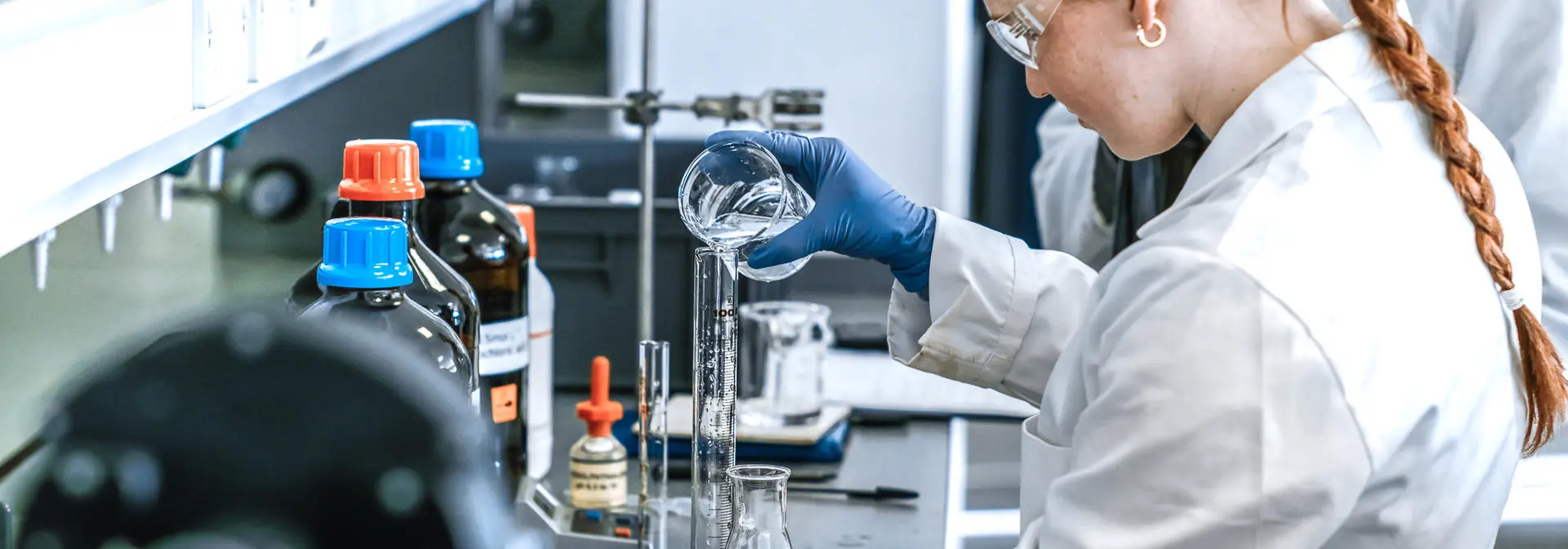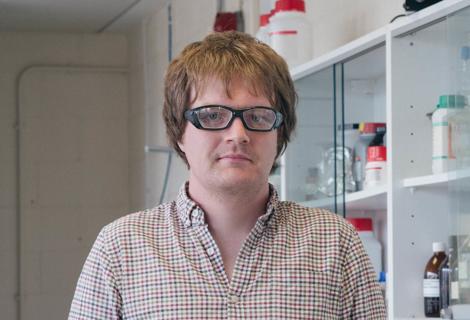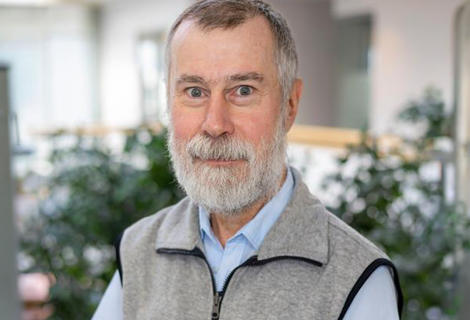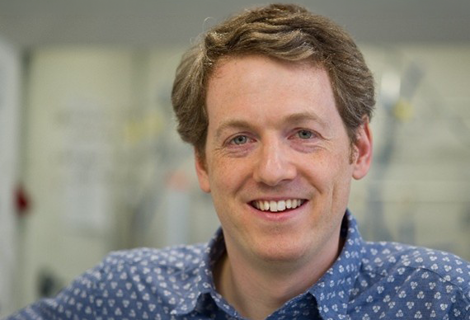Key information
Heriot-Watt University is ranked 1st in Scotland and 7th in UK* for Chemistry by the Times and The Sunday Times Good University Guide 2026.
- UCAS code
- F109
- Level
- Undergraduate
- Delivery type
- Full Time
- Degree qualification
- MChem
- Mode of delivery
- On-Campus
- Duration
- 4-5 years
- Location
- Edinburgh
- Start date
- September
This five-year MChem degree is designed to prepare students for a wide range of careers by providing a strong foundation in core chemistry, alongside specialist topics such as pharmaceuticals, computational chemistry, biology, and materials science. Throughout the programme, you’ll develop valuable practical and digital skills through hands-on laboratory experience and modernised lab teaching. This broad scientific training enhances your employability across diverse sectors, from pharmaceuticals and biotechnology to research and industry.
During the undergraduate degree, you’ll study a comprehensive chemistry curriculum covering chemical reactivity, atomic and molecular structure, chemical bonding, thermodynamics, kinetics, organic synthesis, inorganic chemistry and catalysts, as well as advanced techniques such as multinuclear NMR spectroscopy.
You will gain a broad and balanced foundation of chemical knowledge and practical skills and apply this to create solutions for theoretical and practical problems in chemistry.
Your learning will include extensive laboratory work, to provide you with hands-on experience and opportunities to link theoretical knowledge from lectures to the real world. You will develop your practical abilities, confidence, and communication skills in addition to your extensive, cutting-edge theoretical knowledge of chemistry to become highly employable upon graduation. Chemistry graduates from Heriot-Watt University have a good reputation with employers who appreciate this unique combination of skills and knowledge. This will allow you to work in several roles across a diversity of fields within the pharmaceutical, biomedical, biochemical, health care, agriculture, food, drink and water industries. Opportunities also exist in the chemical, petroleum, electronic, aerospace and communications industries.
In addition to career pathways that directly use your practical skills and chemical knowledge, you can apply your problem-solving abilities, numeracy and other transferable graduate skills to careers beyond the chemistry industry. The broad range of skills involved in a chemistry degree means chemistry graduates are in high demand in other employment sectors, ranging from environmental protection to education, and commerce.
*1st in Scotland and 7th in the UK based on teaching quality
Your student experience
Your learning will be informed by the expertise of our research-active chemical scientists and academics. Your learning will be directly informed by the work and research within Heriot-Watt’s Institute of Chemical Sciences (ICS) which focuses on understanding chemistry at the atomic level, how atoms interact to form molecules and extended systems with useful and interesting properties
Research in ICS encompasses a wide field in response to the needs of a modern technological society. The broad spectrum of interests of the research staff ranges from fundamental aspects of pure chemistry to interdisciplinary areas which involve interactions with physics, biochemistry, and applied science. ICS has excellent facilities that support research and research facilities have been created for high-resolution multinuclear NMR, X-ray crystallography (both single-crystal and powder), laser science, a continuum flow lab, and computational chemistry. Each of these areas has attracted major research funding.
Research in ICS is divided into three main research groupings:
The research and industry focused nature of this undergraduate programme ensures your studies remain innovative and up to date with current and emerging trends.
Go Global
There are currently no Go Global opportunities for this particular programme. However, other Go Global opportunities may be available. Please contact studywithus@hw.ac.uk for more information.
Course content
September Intake - Edinburgh
Year 1
Mandatory September
- Principles of Chemistry
- Introductory Chemistry Lab and Skills 1
- Mathematics for Engineers and Scientists 1
Optional September
- Introductory Biology 1
- Mechanics, Fields and Forces
Mandatory January
- Chemical Reactivity
- Introductory Chemistry Lab and Skills 2
- Mathematics for Engineers and Scientists 2
Optional January
- Introductory Biology 2
- Waves and Matter
Year 2
Mandatory September
- Introduction to Mechanisms and Spectroscopic Analysis
- Quantum Mechanics and Bonding
Optional September
- Foundations of Drug Targeting
- Mathematics for Engineers and Scientists 3
Mandatory January
- Synthesis, Solutions and Potentials of Molecules
- Energy Levels to Structure
Optional January
- Introduction to Microbiology
- Mathematics for Engineers and Scientists 4
- Statistics for Science
Mandatory AY
- Intermediate Chemistry Lab and Skills
Year 3
Mandatory September
- Chemical Reaction Rates and Mechanisms
- Organometallic Chemistry and Spectroscopy
- Introduction to Polymer and Protein Chemistry
Mandatory January
- Modern Synthetic Chemistry
- Electronic Spectroscopy and Statistical Thermodynamics
- Analytical Chemistry
Mandatory AY
- Advanced Chemistry Lab and Skills
Year 4
Mandatory September
- Project Execution, Regulation and Data
Mandatory January
- Advanced Applications of Modern Synthetic Chemistry
Mandatory AY
- Sustainable Synthesis and Catalysis
- Reaction Dynamics, Excited States, and Extended Systems
- Chemistry Dissertation Project
Year 5
Mandatory September
- Current Research in Chemistry A
- Computer Simulations of Molecules
Mandatory January
- Current Research in Chemistry B
Mandatory AY
- MChem Research Project
Optional January
- Human Diseases and Therapeutic Interventions
- Nanomaterials and Catalysis
- Chemistry of Food
Disclaimer
The courses mentioned above may change between now and the time that you study. For more information, please view our Terms and Conditions.
Programme Video
Chemistry - subject video
Fees and funding
| Status | Fee |
|---|---|
| Scotland | Paid by SAAS |
| England / Wales / N Ireland / Rep of Ireland | £9,790 |
| International | £25,808 |
- Status: Your residency status is usually defined as the country where you have been ordinarily resident for the three years before the start of your course.
- International: 'International' includes applicants from European Union countries who do not hold Pre-Settled or Settled status in UK. (This does not include students from the Republic of Ireland - see above).
Scholarships and bursaries
Bursaries for students from England, Northern Ireland or Wales
In addition to government loans and grants towards the costs of fees and living costs, we are offering generous financial support to attract and support eligible undergraduate students from England, Northern Ireland or Wales:
- Heriot-Watt University Bursary (up to £3,100 per year)
Entry requirements
We have standard entry requirements for all of our courses that you will have to meet.
Year 1
Standard entry requirements
- Highers AAAB (over two sittings). Must include Chemistry at A, and one of Maths or Physics or Engineering Science at B.
- A-Levels BBB. Must include Chemistry at B, and either Maths or Physics at B.
- International Baccalaureate 30 points. Must include Chemistry at Higher Level 5 and either Maths or Physics at Higher Level 5.
- BTEC Extended Diploma DDM. Must be relevant science subject including sufficient Chemistry and Maths.
- HNC A in graded unit. Must be relevant science subject including sufficient Chemistry and Maths.
- HND BB in graded unit. Must be relevant science subject including sufficient Chemistry and Maths.
- Please check that you meet our University-wide National 5/GCSE (or equivalent) English and Maths requirements.
Minimum entry requirements *
- Highers BBBC (over two sittings). Must include Chemistry at B, and one of Maths or Physics or Engineering Science at B.
- A-Levels BCC. Must include Chemistry and either Maths or Physics, with one required subject at B.
- International Baccalaureate 28 points. Must include Chemistry and Maths, both at Higher Level 5.
- BTEC Extended Diploma DMM. Must be relevant science subject including sufficient Chemistry and Maths.
- HNC B in graded unit. Must be relevant science subject including sufficient Chemistry and Maths.
- HND BB. Must be relevant science subject including sufficient Chemistry and Maths.
*Minimum: under our Fair Access Policy, we will relax our standard entry requirements for some Scottish and Rest of UK status students depending on their circumstances. Our minimum requirements will apply if you:
- live in an area within the Scottish Index of Multiple Deprivation lowest 20% (SIMD20) or POLAR4 Quintile 1 regions (RUK)
- or are care experienced.
We can also make exceptions for some Scottish students with grades above minimum but below standard. Read more about our Minimum and standard entry requirements.
Year 2
- Advanced Highers AB. Must include Advanced Higher Chemistry and Maths, and meet Year 1 Higher AAAB requirements.
- A-Levels BBB to include Chemistry and Maths.
- International Baccalaureate 34 points. Must include Chemistry and Maths at HL 6.
- BTEC Extended Diploma DDD. Must be in relevant science subject, including sufficient Chemistry and Maths.
- HNC A in graded unit. (Only available for approved articulation routes.)
- HND BB. Must be relevant science subject including sufficient Chemistry and Maths.
- Global College Successful completion of our Science with Foundation
Additional information
- For all years, applications are welcomed from holders of non-school qualifications, mature candidates and overseas students.
- If you do not see your qualifications here please contact us at studywithus@hw.ac.uk
- For applicants studying HNC, HND or BTEC qualifications, when submitting your application please ensure you list in full all the units you are currently studying, as specific units (e.g. in Maths) may be required."
English language requirements
If your first language is not English, we'll need to see evidence of your English language ability.
The minimum English language requirement for entry to this programme is IELTS 6.0 (or equivalent) with no score lower than 5.5.
If you do not have IELTS 6.0, we offer a range of English language courses to help you meet the English language requirement for this programme prior to commencing your studies.
Please see our detailed English language requirements.
Why Heriot-Watt
We're the top university in Scotland for graduate outcomes which means that more of our graduates are employed or in postgraduate education than any other institution in the country and we ranked 5th in the UK.
We're also rated number one in the UK for CEO or MD roles, meaning more of our graduates go on to become CEOs or MDs than any other university in the whole of the UK. On top of that, we have beautiful campuses, across the globe, so you'll get a truly international education. Our Edinburgh Campus is home to Oriam, Scotland's National Sports Performance Centre combined with plenty of wellbeing resources, prioritising fitness and mental health for all students. Our Global Research Institutes look at solving real world issues such as climate change and saving our oceans as well as working on the next medical technological breakthrough and the future of AI and robots.
Employability
Work and study
Salary
Potential career paths
- Science, engineering and technology associate professionals
- Natural and social science professionals
Student life
Explore facilities, and chat to staff and students
Discover Uni course data
Discover Uni provides data on each university's degree courses across a range of measures including student satisfaction, graduate jobs and salaries.
Contact our enquiries team
Contact usRelated programmes

BSc (Hons) Chemistry

MChem Chemistry with Placement











